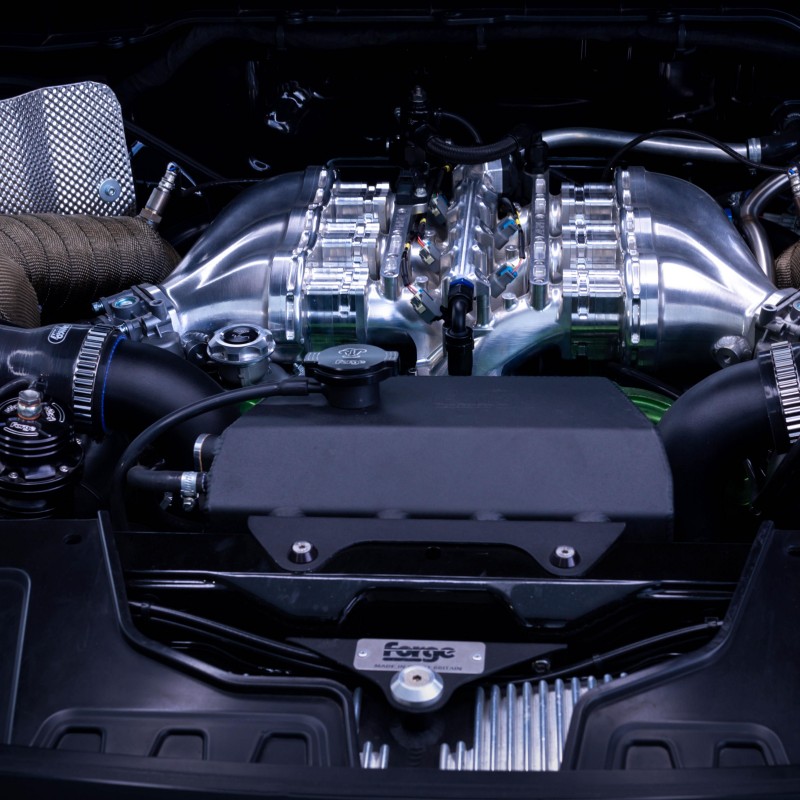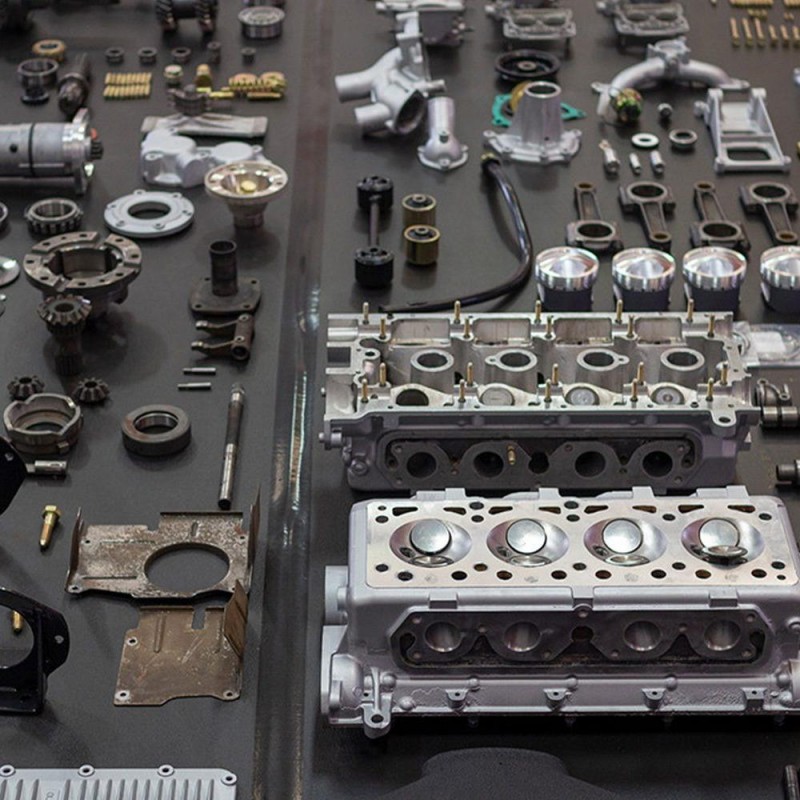When examining the intricacies of the automotive world, one of the most debated topics is the comparison between diesel vs gasoline engines. Each type of engine has distinct characteristics, advantages, and disadvantages that make them suitable for different applications and preferences. While gasoline engines typically dominate the passenger vehicle market, diesel engines have carved out niches in heavy-duty applications, such as trucks and industrial machinery. Understanding the differences between these two engine types can greatly impact consumer choices, usage efficiency, and overall performance. In this comprehensive article, we will delve into the mechanics and technology behind diesel and gasoline engines, investigate their fuel efficiency, environmental impact, maintenance requirements, and their respective roles in today’s automotive market. By the end of this exploration, you will have a clear understanding of diesel vs gasoline engines and which option may be best suited for your needs.
The Basics of Engine Functionality
Before we dive deep into the intricacies of diesel vs gasoline engines, it’s essential to understand how both types of engines function fundamentally.
Internal Combustion Engines Explained
Both diesel and gasoline engines fall under the category of internal combustion engines (ICE), meaning they convert fuel into mechanical energy through combustion. The basic components shared by both types of engines include:
- Pistons: Move within cylinders and are essential for converting combustion energy into mechanical energy.
- Crankshaft: Converts the reciprocating motion of pistons into rotational motion, which ultimately drives the wheels.
- Fuel Injection System: Delivers fuel into the combustion chamber, although the method varies between gasoline and diesel engines.
- Exhaust System: Expels combustion gases from the engine to the atmosphere.
The primary difference in functionality between diesel and gasoline engines lies in the compression ratios and the methods of fuel ignition.
The Combustion Process
In gasoline engines, air and fuel are mixed and compressed in the cylinder before a spark plug ignites the mixture. The combustion that follows forces the piston down, generating power. Typically, gasoline engines operate with lower compression ratios, usually ranging between 8:1 to 12:1.
Conversely, diesel engines utilize a different method known as compression ignition. In this system, air is compressed first, causing it to heat up significantly. When diesel fuel is injected into the highly compressed air, it ignites immediately due to the high temperature, resulting in combustion. Diesel engines usually have compression ratios ranging from 14:1 to 25:1, contributing to their unique characteristics.
Key Differences: Diesel vs Gasoline Engines
Understanding the core differences between diesel and gasoline engines provides insight into performance, fuel efficiency, and practical applications. Let’s explore these differences in more detail.
Fuel Efficiency
One of the critical distinctions between diesel vs gasoline engines is fuel efficiency.
Diesel Engines
Diesel engines are renowned for their superior fuel efficiency. They tend to generate more energy from the same amount of fuel due to the higher compression ratios and the energy density of diesel fuel. This means that vehicles equipped with diesel engines can travel further on the same volume of fuel compared to gasoline-powered counterparts.
Gasoline Engines
On the other hand, gasoline engines are generally less fuel-efficient than diesel engines. They burn fuel at a faster rate, leading to lower miles per gallon (MPG). However, advancements in technology have led to improvements in fuel efficiency for modern gasoline engines, particularly with the introduction of turbocharging and direct fuel injection systems.
Power Output and Performance
Performance characteristics between diesel vs gasoline engines often differ significantly.
Diesel Engine Performance
Diesel engines produce higher torque at lower RPMs (revolutions per minute), which translates to strong pulling power and excellent performance when carrying heavy loads. This characteristic has made diesel engines a popular choice for trucks and commercial vehicles, especially in applications requiring towing capacity.
Gasoline Engine Performance
While gasoline engines may offer less torque initially, they typically excel in high RPM performance, allowing for faster acceleration and smoother operation at higher speeds. This characteristic makes gasoline engines more suitable for sports cars and passenger vehicles focused on driving pleasure and speed.
Emissions and Environmental Concerns
The environmental impact is becoming an increasingly pressing issue, especially concerning diesel vs gasoline engines.
Diesel Emissions
Diesel engines emit higher levels of nitrogen oxides (NOx) and particulates, which can lead to air quality concerns. However, they produce lower carbon dioxide (CO2) emissions per unit of energy generated, which can be advantageous in terms of reducing greenhouse gas impacts. Modern diesel engines now come equipped with advanced emissions control technologies, including selective catalytic reduction (SCR) systems, to mitigate these emissions.
Gasoline Emissions
Gasoline engines generally emit lower levels of NOx and particulates compared to diesel engines. They do, however, produce more carbon dioxide relative to the amount of fuel burned due to their lower energy density. As strict emissions regulations’ push for cleaner-burning fuels, advancements in gasoline engine technology continue to evolve, producing fewer harmful pollutants.
Maintenance and Durability
Regular maintenance plays a crucial role in ensuring engines operate efficiently. Here’s how the two types compare.
Diesel Engine Maintenance
Diesel engines are known for their longevity and durability, often lasting significantly longer than gasoline engines when properly maintained. However, they require more specialized maintenance, like regular oil changes that are tailored to the heavier viscosity of diesel oil. Additionally, diesel engines may require more frequent servicing of fuel injectors and exhaust systems.
Gasoline Engine Maintenance
Gasoline engines tend to be easier and less expensive to maintain. While they may not last as long as diesel engines, advancements in engine technology have led to improved durability. Routine maintenance like oil changes, air filter replacements, and inspections are crucial to keeping gasoline engines running smoothly.
Cost Considerations: Diesel vs Gasoline Engines
When considering the impact of diesel vs gasoline engines, immediate and long-term costs are significant factors.
Purchase Price
Typically, vehicles equipped with diesel engines have a higher initial purchase price compared to their gasoline counterparts due to the added complexity of the engine and emissions control systems. This cost difference can range from a few thousand dollars to significantly more, depending on the vehicle model.
Fuel Costs
Historically, diesel fuel has often been more cost-effective than gasoline, contributing to the preference for diesel engines in commercial applications. However, fluctuations in fuel prices can vary, so it’s essential to consider current market conditions when calculating potential fuel savings.
Maintenance Costs
While diesel engines may last longer, their maintenance costs can be higher due to specialized servicing. Conversely, gasoline engine maintenance is typically less costly, but the overall lifespan may be shorter than a diesel vehicle’s.
Resale Value
The resale value of diesel vehicles tends to remain higher, particularly in markets where towing capacity and durability are valued. However, this momentum can shift depending on trends and fuel efficiency considerations.
Practical Applications: Choosing Between Diesel and Gasoline
The choice between diesel vs gasoline engines depends significantly on one’s intended use. Here are some practical applications to consider:
Commercial Vehicles
Heavy-duty trucks and commercial vehicles frequently utilize diesel engines due to their torque, towing capacity, and fuel efficiency over long distances. These factors make diesel a preferred option for businesses relying on transportation for goods.
Passenger Vehicles
In contrast, gasoline engines dominate the passenger vehicle market because of their lighter weight, less upfront cost, and broader variety of vehicle options. The acceleration capabilities of gasoline engines also appeal to consumers seeking performance in cars and SUVs.
Recreational Use
For individuals looking to tow trailers or participate in outdoor activities requiring heavy hauling, diesel engines may offer a significant advantage. Whether for RVs or boats, the added torque and endurance of diesel engines can enhance the overall experience.
Environmental Foresight
As environmental regulations become increasingly stringent, gasoline engines may become more favorable due to their lower NOx emissions. For consumers concerned with emissions and environmental impact, gasoline engines may be a better fit, especially with technological advancements improving their efficiency.
Future Trends in Diesel vs Gasoline Engines
As the automotive industry continues to evolve, several trends are emerging that will shape the future of diesel and gasoline engines.
The Rise of Electric Vehicles
The growing electric vehicle (EV) market is presenting challenges for both diesel and gasoline engines. With stricter emissions regulations and an increasing focus on sustainability, more consumers are considering EVs as alternatives. This trend may ultimately lead to a decline in traditional engine options, impacting their respective market shares.
Technical Innovations
Both diesel and gasoline engines are undergoing technical innovations aimed at improving efficiency and reducing emissions. Innovations such as turbocharging, direct fuel injection, and hybrid technologies are enhancing performance while addressing environmental concerns.
Eco-Friendly Fuels
The development of eco-friendly fuels, including biofuels and synthetic fuels, may also impact the dynamics between diesel and gasoline engines. These alternatives could improve the sustainability of traditional engine technologies.
Consumer Preferences
As consumer awareness of sustainability increases, preferences may shift toward greener options. This evolution could influence the production and marketing of diesel and gasoline vehicles, placing additional weight on manufacturers to develop cleaner options.
Conclusion
The comparison between diesel vs gasoline engines is multi-faceted and complex, with significant implications for consumers and the automotive industry. Understanding the unique characteristics, advantages, and limitations of both engine types will empower prospective buyers to make informed decisions that align with their needs and preferences.
From improved fuel efficiency and longevity in diesel engines to the quick acceleration and cost-effectiveness of gasoline counterparts, both options present valuable features tailored to specific applications. As technological advances continue to reshape the landscape of the automotive industry, the distinctions between these engine types will also evolve.
Ultimately, whether you choose diesel or gasoline will depend on various factors such as vehicle type, intended use, and personal values. By weighing these elements and staying informed about industry developments, you’ll be better prepared to select the right engine for your vehicle and driving lifestyle.
Tags: automotive comparison, engine technology, vehicle efficiency